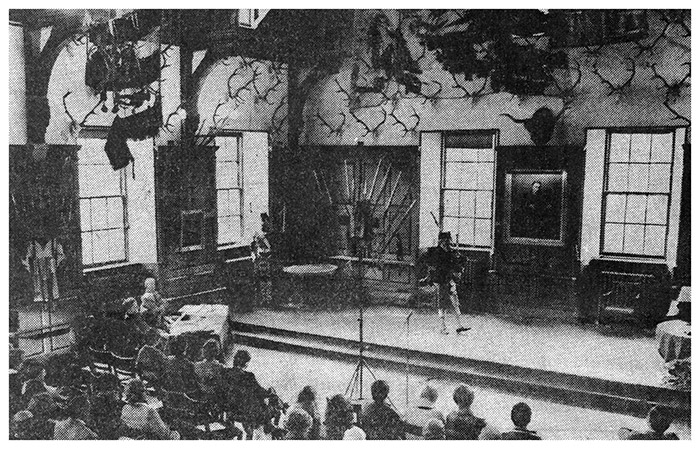
The annual Glenfiddich Championship will take place again this October, hopefully before a live audience. This failing, it will be run as last year, livestreamed before live judges but crowd less. The following is taken from a report by well-known journalist Rennie McOwan who attended the famous event, then known as the Grant’s Championship, 40 years ago……..
The journalist from the French travel magazine was puzzled. All these individual tartan-clad figures strutting up and down playing bagpipes. A rapt audience in a high-ceiling hall hung with faded banners and with dozens of stags heads covering the walls.
It seemed so Highland, but where were the drummers? And why one at a time? And why the need for quiet? The music seemed formless and shapeless to him, he said. Miss Brodie came to the rescue. ‘They are the creme de la creme,’ muttered a colleague. ‘It is the classical music of the pipes – like a Bach fugue,’ whispered another.
It was all taking place in Blair Castle, ancestral home of the Duke of Atholl. The whisky firm of William Grant & Sons and Scotland’s leading pipers have struck up a happy partnership.
The first recorded piping competition was at Falkirk in 1781 and its direct descendant, the Northern Meeting, is held at Inverness in September. The Argyllshire Gathering at Oban began in 1871. These are considered the two main classic events in the piping year. More recently two others were added, the Bratach Gorm (Blue Banner) held in London, and the Silver Chanter, held at Dunvegan Castle, Skye, in mid-August.
[wds id=”2″]
Grants took it a little further. With the assistance of the Piobaireachd Society, they invited the winners to compete in a special competition, a Championship of Champions.
It is now regarded as the top award, and the winner – competing with nine others – can rightly regard himself as the best piper in Britain and probably the world. Even to he invited is a marked honour.
The players list six pieces, of the Ceol Mor (popularly known as pibroch), the great music of the pipes, intricate, stylised and complex, and on the day the judges pick one for the competitor to play. They also play a march, strathspey and reel – the Ceol Beg [sic], the little music -and again the judges nominate tunes.
The winner gets a mounted silver-chased ram’s horn, the Balvenie Trophy, a sgian dubh (black knife) and a cheque. The runners up, and the first three in both sections, also get awards – and much renown.
Spectators come from many lands, Australia, New Zealand, Canada – all with piping traditions – and at our weekend, also from France, Germany, Brazil, Austria and the United States.
[wds id=”9″]
‘As the World Cup is to football so this competition is to pipers,’ said Hugh Nicol, a 53-year-old civil engineer from Glasgow, who emigrated to Perth, Western Australia in 1969. He returned on holiday specifically to take in the competition and taped the lot for the ladies band he instructs. ‘I did not want to miss this. In eight hours you can hear the world’s best.’
Among the ten were Jack Lee, at 23 the youngest competitor, from Vancouver, a newcomer to Grants, but a regular prizewinner in Scottish forays. At the party which followed the championships he was still playing with others at 3am and left at 5.
Canadian lawyer Bill Livingstone, whose father emigrated from Cumnock, Ayrshire, also flew in. He is another Scottish regular winner.
The home men are all piping giants and include Edinburgh-born Pipe Major Gavin Stoddart, of the Royal Highland Fusiliers who flew in from West Germany, Iain MacFadyen, one of three piping brothers, who has won all the major prizes, Hugh MacCallum, Grants winner In 1978, and Pipe Major lain Morrison, last year’s champion.
Tourists accustomed to grade three bands blasting their way down the Royal Mile found themselves in a different world. No talking is allowed as competitors tune up, sllence is demanded during playing and flash-cameras are forbidden once a competitor starts to play.
The uninitiated were at a loss to know when pibroch tuning up ended, and a press gallery suggestion that a flag be raised met with tut-tuts.
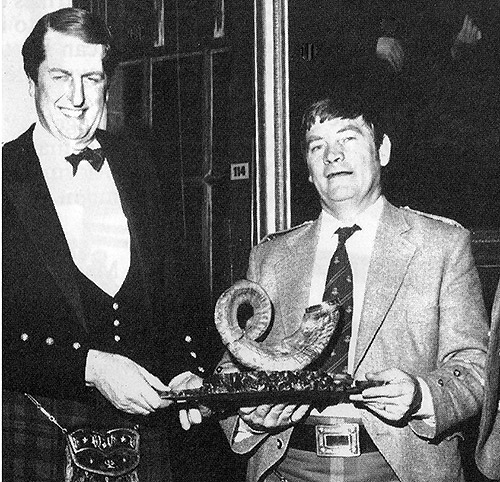
An easier way for those struggling to understand was to watch the audience: an audible stillness and quiet instantly replaced slight murmuring at the official note [sic]. Out poured the music from centuries of Gaeldom, lost loves, forgotten skirmishes, victories, mourning for lost heroes.
It was salutary to watch the judges, fingers twitching, or sitting back expressionless. It just needed one slip for all three, as if on a string, to jerk up and write busily.
After tea; it was back again with new judges for the march, strathspey and reel competition. Each of the three tunes had to be played twice and some discreet audience foot-tapping was permitted.
By late evening it was all over. Experienced hands shrugged their shoulders. It was going to be close. The judges were out a long time.
The Miss World contest could not have had a more attentive audience as the results were made in reverse order: Iain MacFadyen, from Kyle of Lochalsh, won the pibroch, with New Zealander Murray Henderson second. Hugh MacCallum was third, and Gavin Stoddart fourth.
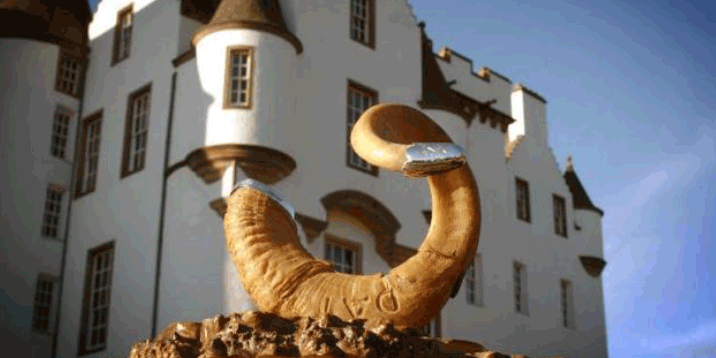
In the march, strathspey and reel, Gavin was first, second was Badenoch schools instructor John MacDougall, third Hugh MacCallum and fourth Iain MacFadyen.
The two sets of marks are added together: Hugh MacCallum was third. Iain MacFadyen and Gavin Stoddart both had a first and a fourth rating, but as pibroch marks take precedence, Iain was declared the overall winner.
The Duke of Atholl presented the prizes and the well-pleased crowd returned to Pitlochry. Hotel guests who said they had come to Scotland for a quiet weekend were pleasantly advised to go to bed in the afternoon and join the piping at night. They did.
Since the Grants competition began in 1974, Iain MacFadyen is the only man to have won it twice. Now 46, be served with the Camerons for a time and was pipe major of the Glasgow Transport band.
‘I thought I was in with a chance. I know I was playing well,’ he told me. Iain is a piping instructor with Highland Region and lives in Kyle of Lochalsh. ln the early hours, after a gruelling day to become the world’s best, he was still piping with others for the fun of it. Lucky pupils to have such a master.
- Judges were John Burgess, General Frank Richardson and RG Hardie (Piobaireachd), and Donald MacGillivray, John MacKenzie and Iain MacLeod (MSR). Comments by Seumas MacNeill from the Piping Times of December 1981: Bill Livingstone ‘hidden in a cloud of talc’; Iain MacFadyen ‘aiming for first prize’; Gavin Stoddart ‘fine performance’; Hugh MacCallum ‘flawless’; Andrew Wright ‘two small chokes’; Jack Lee ‘hampered by pipes’; Iain Morrison ‘slip early on’.
-
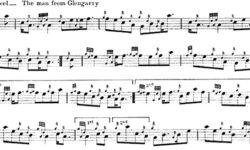 Classic Strathspeys & Reels – Vol. 1 (A – F)£2.50
Classic Strathspeys & Reels – Vol. 1 (A – F)£2.50 -
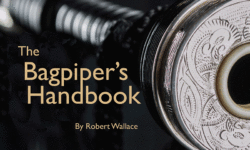 Bagpiper’s Handbook – Handy Maintenance Tips£10.50
Bagpiper’s Handbook – Handy Maintenance Tips£10.50 -
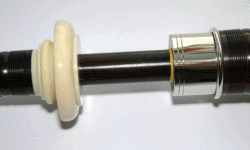 Bagpipes – DN1, High Quality InstrumentPrice range: £100.00 through £1,250.00
Bagpipes – DN1, High Quality InstrumentPrice range: £100.00 through £1,250.00







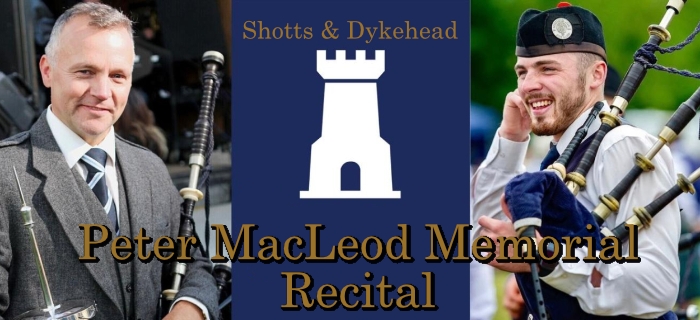









What a nice treat from 40 years ago. Much has changed, but Jack Lee is still going strong!